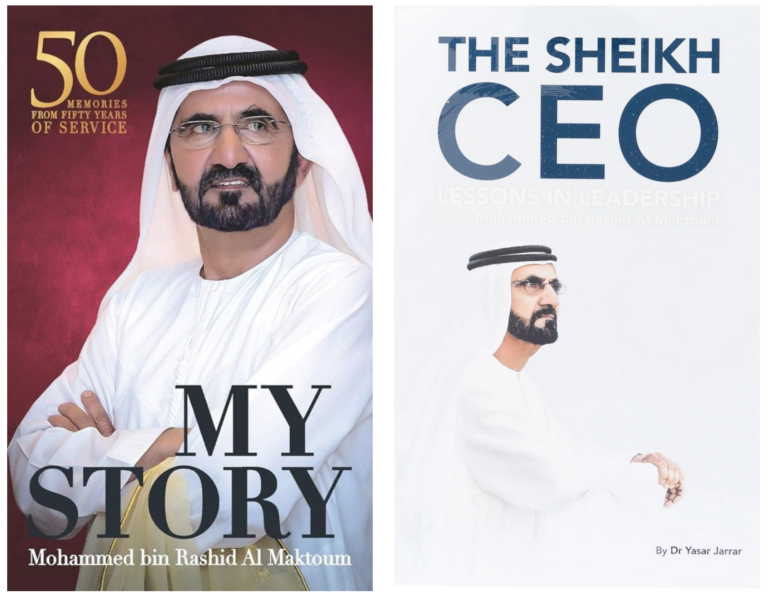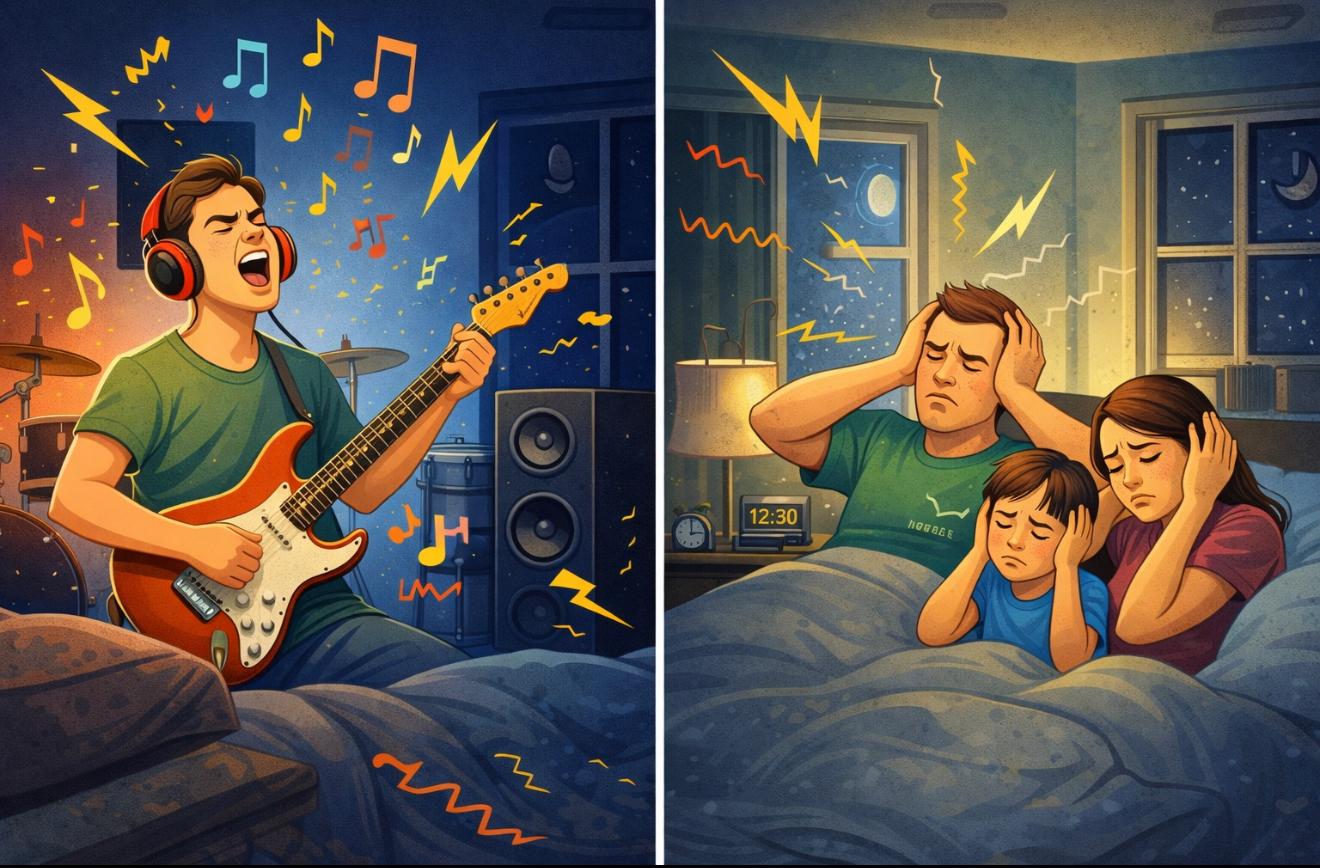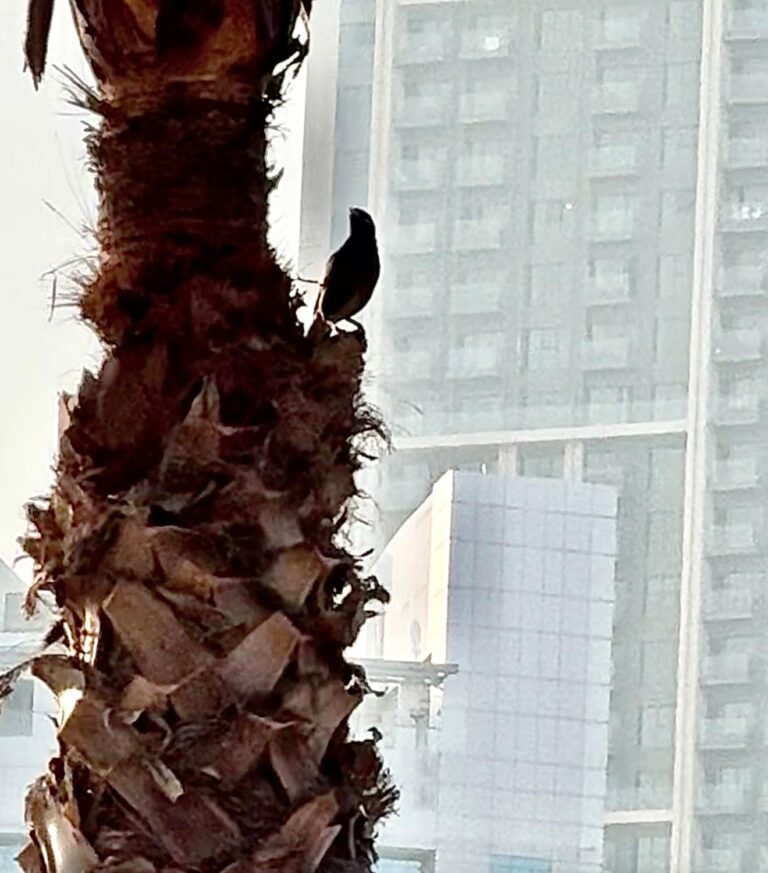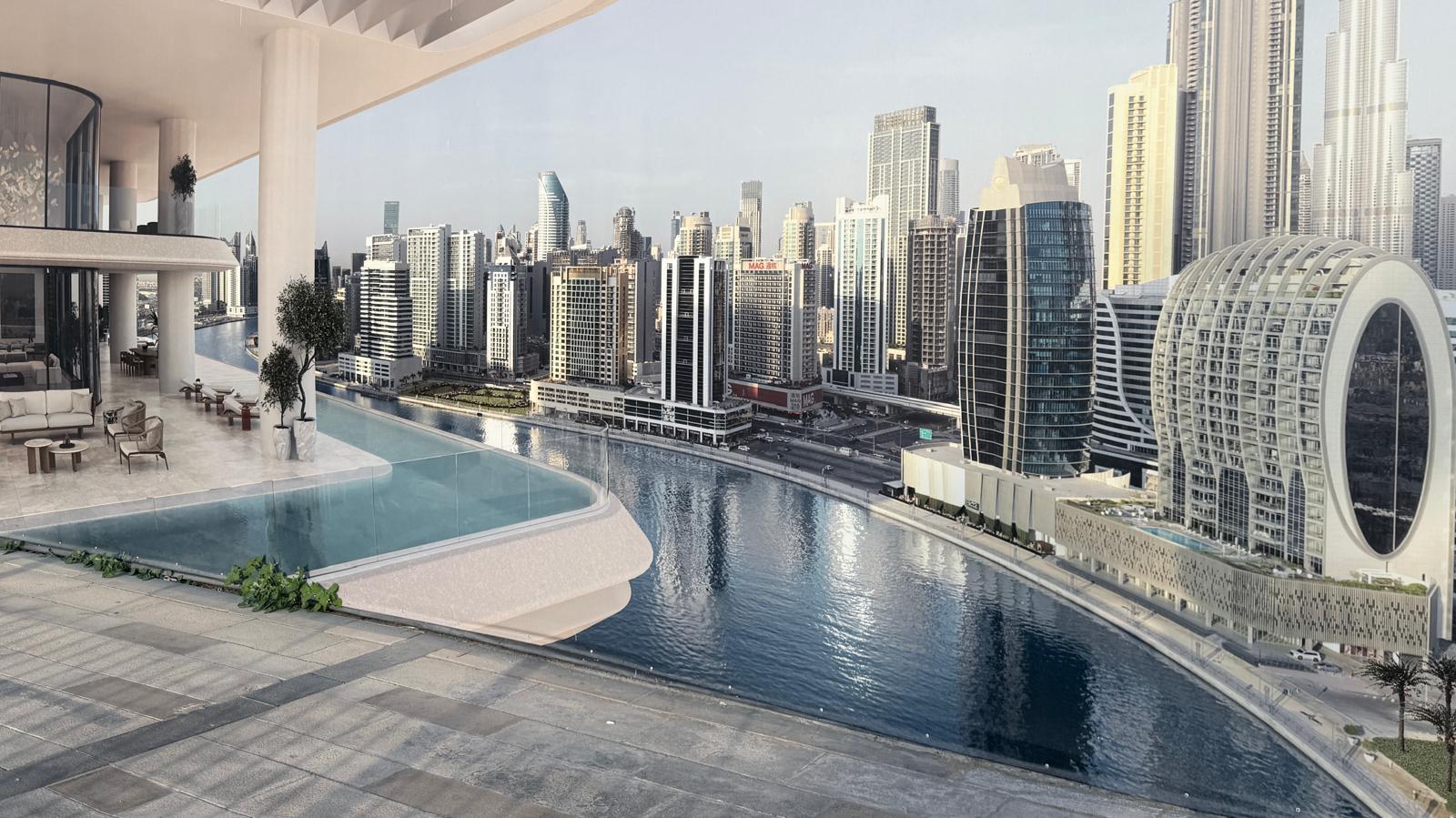My first hours in Dubai began as I boarded the Emirates airplane in Frankfurt. I immediately noticed that nearly all the staff attending to us were from countries other than Dubai. The same was true at the airport. My taxi driver was an immigrant from India, and in the lobby of the building where I rented an apartment, the employees were also immigrants. Throughout my entire stay in Dubai, this pattern continued: most of the people working on the frontlines of businesses and services were immigrants. Many were from poorer countries, and at first – based on reports I had seen on television – I wondered if they were a kind of modern-day labor force. Determined to understand the reality, I made it a point to speak with as many of these employees as possible – and I did.
While I originally came to Dubai for other reasons, I soon found myself drawn to exploring the city as a country of immigrants, reflecting on my own experience as an immigrant in Germany since 1983. So I wanted to take the opportunity to understand how immigrants perceive the country they choose to live and work in. I spoke with 19 people, aged 18 to 78, from a variety of professions. I asked about their reasons for coming to Dubai, their families, whether they could live comfortably, if their children were receiving good education and healthcare, their opportunities for financial advancement in their current jobs, and whether they had ever felt excluded or segregated in their new hometown.
What I discovered surprised me in a very positive way: through these conversations, I gained a vivid picture of life in Dubai – a blend of challenges, opportunities, and a hopeful outlook for the future. Despite the hurdles, many expressed far more positive than negative feelings about living in the city, valuing its safety, stability, equality, high-quality service and the professional opportunities it offers for themselves and their families.
Many of the immigrants who come to Dubai arrive largely illiterate, without professional experience, and with little money to support a life in such a modern and expensive city. They often begin their stay under very challenging conditions, living in poorly maintained worker barracks, sharing rooms with several others, and using communal kitchens and bathrooms. They work in ongoing construction projects, cleaning toilets in shopping malls, and performing other essential but low-paid jobs. Yet, they have the opportunity to improve their situation. Many do, finding ways to advance their careers and now enjoying a decent standard of living supported by their incomes, as I discovered when speaking with several people who had started their lives in Dubai under such circumstances.
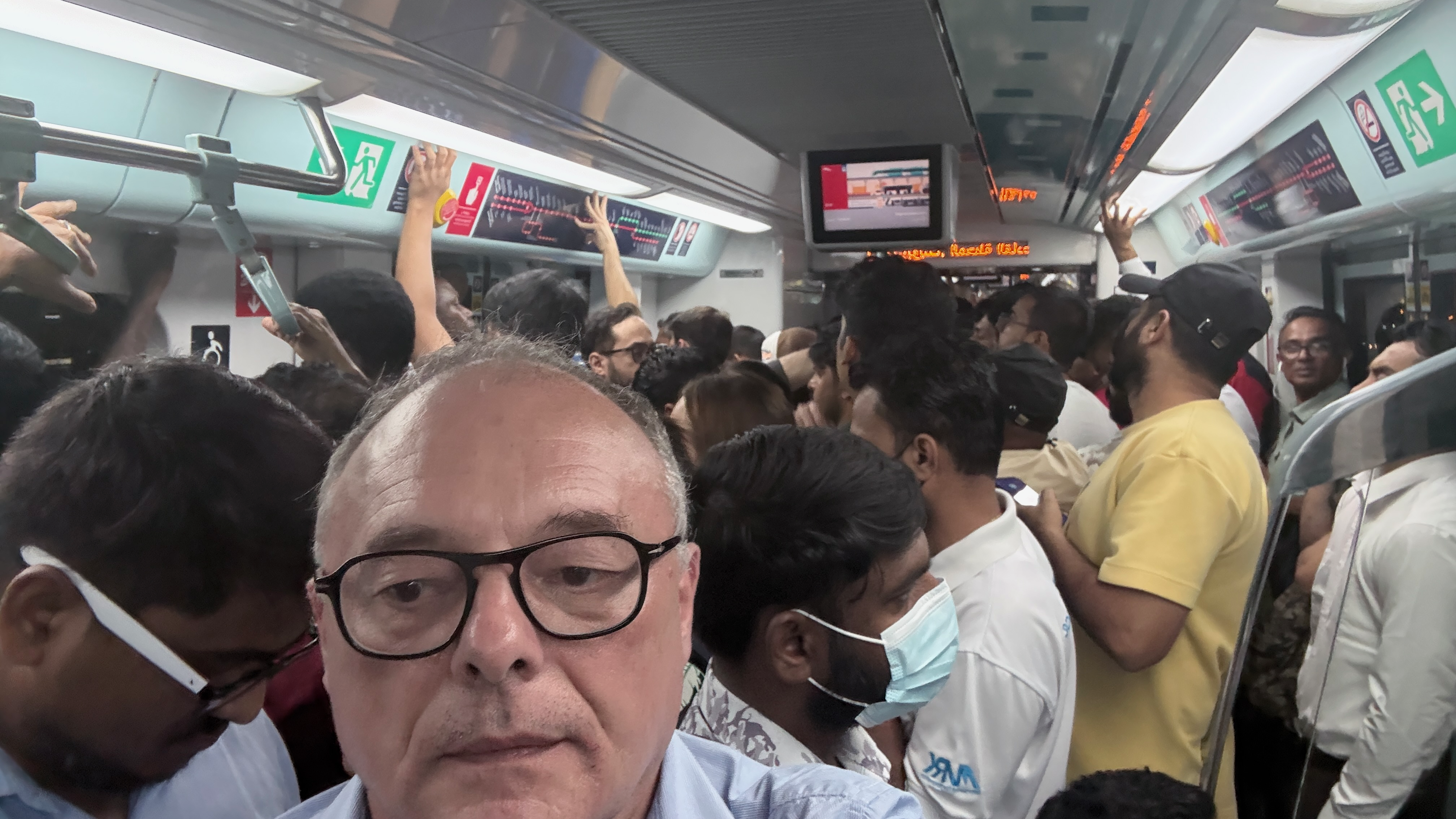
One day, while standing in a crowded metro train during rush hour, pressed by dozens of men and women heading home after a long workday, I started a conversation with a man standing next to me. He is 28 years old, originally from Sri Lanka, and has been living in Dubai for over six years. He told me that during his first week, while getting off a bus in his neighborhood, his mobile phone was stolen. Despite his limited English, he went to the police station and reported the theft. At first, he thought the case would be ignored because he was a poor immigrant from a “less important” country—and it was only a mobile phone. But three days later, he was called to pick it up. The police had investigated the case using the extensive network of surveillance cameras spread across Dubai—in taxis, buses, streets, and public areas—and had traced the phone to another immigrant.
Now, after six years in Dubai, he has managed to move out of the workers’ neighborhoods — which he described as very poor — and has built a good life for himself. His wife joined him from Sri Lanka, and together they now have two children who were born in Dubai. The family is well insured, the children receive a good education, and they are growing up in an environment that is safe and filled with the positive energy of dreams coming true. Both he and his wife work — he as an employee in a mall, and she part-time — while their children attend school. He told me they have never felt discriminated against because of his skin color, cultural background, or financial situation.
When he first arrived, he had no money, spoke poor English, and had little professional experience. He came to modern Dubai seeking a chance at a better life. Living in poorly maintained workers’ barracks, sharing rooms with several other men and using communal kitchens and bathrooms was challenging. Yet, he recalled, even that difficult situation had a positive side for immigrants like him: it was safe — they had food, a place to sleep, and work that provided an income. “It was a hard start,” he said, “but there’s no segregation here like in many European countries. For him, and for many immigrants in Dubai, coming to the city was not just about escaping poverty in their home countries. They wanted to succeed in life, as everyone aspires to do, and Dubai provides the right environment for it. “Dream big for yourself and your family, wish others well, and work hard,” he told me. What truly matters is delivering good work and gaining experience—because that opens the door to higher positions, better salaries, and more opportunities. That, he explained, is the simple formula for success in Dubai.
Another opportunity to interact with someone arose in the public restrooms of in the public restrooms of a shopping mall, where I observed that the cleaning personnel, all young immigrants, performed their demanding tasks while maintaining a courteous and friendly attitude toward the public. I started a conversation with one of them. He was 19 years old, very slim, and originally from Pakistan. We couldn’t communicate very well, as he had only been in Dubai for five months and his English was limited. Still, I could tell that he was very happy to be in Dubai. When I asked about his dream of building a good life, he told me he was confident he could succeed because others from his country in similar jobs had done it. He said he was determined to work very hard to build his future in Dubai.
A young woman from the Philippines, working in a café at the Dubai Mall, told me she had been living in Dubai for over a year. She does not have a formal work contract, which means she does not have health insurance, and she must cover most of her apartment rent herself. She shares her apartment with two other young women, one from India and one from Nepal. Two of her friends from her home country moved to Germany after noticing that the country is actively seeking well-qualified foreigners. Her friends have been working there for almost three years in the hospitality and gastronomy sectors. From their experience, she observed that life in Germany seems much more complex than in Dubai. Another challenge, she noted, is the high cost of living: people in Germany must pay substantial taxes, rent, utilities such as electricity, water, gas, and heating, as well as health insurance and public transportation. These expenses leave most with little to save at the end of the month—even if they cook at home and rarely eat out. She herself is trying to find another job in Dubai, but this has proven difficult due to growing competition. She is now looking for opportunities to learn a profession that would allow her to move away from her current type of work and afford a better life in Dubai.
In the district of Jumeirah Lakes Towers, I noticed an elderly man working in a garden and decided to talk to him. He is 78 years old and from India. He came to Dubai in the 1990s because one of his daughters and her family were already living here. Initially, they ran a small business, and later established a transportation company, which became very successful. He himself worked as a security guard in a hospital and is now retired, living with his wife in this beautiful lakeside district. He reflected that life is difficult anywhere if you are poor and lack formal qualifications, but he believes Dubai offers opportunities to build a good life. You don’t have to be extremely wealthy, as one often sees in parts of Dubai with luxury cars like Rolls-Royces. Dubai provides an affordable, safe work-life balance for everyone, even today, he said. When I asked him about segregation, he explained that neither he nor any member of his family has ever felt discriminated against because of their skin color, appearance, cultural background, religion, or any other reason. Curious about neighborhoods for people who work hard but cannot afford to live in prime areas like Jumeirah Lakes Towers, I asked him for suggestions. He recommended Al Barsha, where many middle-income residents live; his family had lived there for over a decade.
Al Barsha has a diverse socio-economic mix, including middle-income families and long-term residents. It is more affordable than areas like Business Bay, Dubai Marina, or Jumeirah Lakes Towers, making it especially appealing for families seeking space and schooling options. The neighborhood is also well-connected, with a convenient and modern metro station, numerous stores, clinics and small hospitals, and a major shopping destination in Mall of the Emirates. Al Barsha offers many amenities while remaining relatively quiet and family-friendly. The supermarkets offer the same high-quality products as those in the wealthier areas. Supermarkets in middle-income neighborhoods here are surprisingly luxurious, especially when compared to those in similar areas in Germany. At the checkout, after paying for their selected items, a staff member even packs the groceries for the customers.
From my extensive observations and conversations, I found that newly arrived immigrants are generally very confident about building a better life in Dubai. Many others have already succeeded in doing so and express their happiness openly, radiating positive energy in their interactions with everyone they meet in their workplaces and daily work life. There is, of course, a visible gap between the very rich and the poor, but this does not stem from discrimination. Dubai is a city that offers people from all over the world – regardless of their cultural or professional background – the opportunity to come, work well, and achieve the essential goals of a good work–life balance.
Everywhere in the world, people must work hard to pursue their dreams, but Dubai stands out as a place where opportunities — even for those at the very bottom of their home country’s social pyramid — can truly make those dreams possible. In many democracies, the work of hundreds of elected politicians consumes millions in tax money, often without delivering a clear vision or tangible benefits for the majority of citizens. Politicians grow wealthy, while the people become poorer or remain trapped in poverty, with few opportunities to earn a decent income.
In contrast, His Highness Sheikh Mohammed and his team work strategically and effectively, guiding the country through complex challenges while creating genuine opportunities for both Dubai’s citizens and its large immigrant community.
Many economically developed democratic countries invest millions in efforts to attract immigrants but often fail, due to negative factors that immigrants simply do not face in Dubai.

